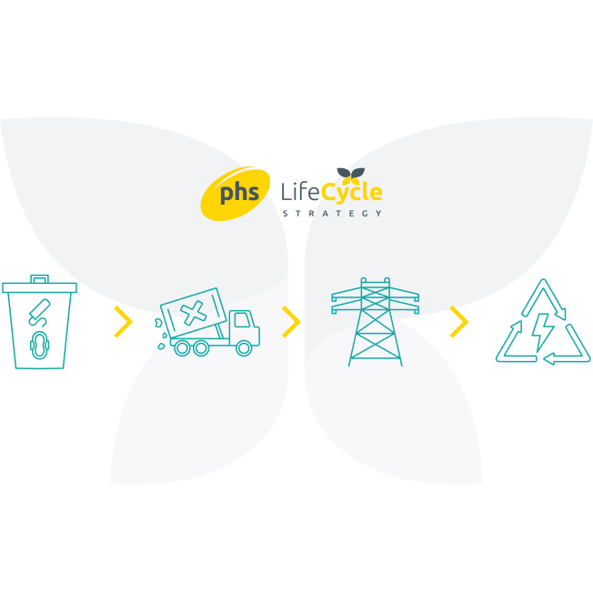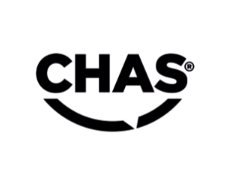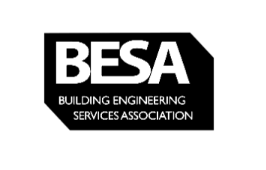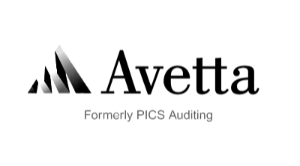phs Group has acquired Citron Hygiene UK - we’re here to support you. Read our customer FAQs and find our contact details here.
The Shift Towards Chemical-Free Hygiene
Commercial environments are increasingly moving away from traditional harsh cleaning chemicals. Concerns about employee safety, indoor air quality, and environmental responsibility are driving the shift instead towards enzyme-based cleaning solutions.
So what does it mean to clean with enzymes, how is it different to using chemical products, and what can they be used for?
What is Enzymatic Cleaning?
Enzymatic cleaning uses natural enzymes, proteins to break down organic soils such as proteins, fats, and starches. These enzymes, proteins such as protease, lipase, and amylase, act as a biological catalyst to speed up reactions that break up stains with minimal energy input.
As a result, enzymatic cleaners are a form of sustainable cleaning that activate at gentle pH levels and temperatures. To achieve the same result, chemical cleaners typically require heat or other additional abrasive ingredients.
Enzymatic Cleaner vs. Chemical Cleaner: What's the Difference?
Traditional chemical cleaners tend to use harsh agents to mask or move soils and stains, whereas enzymatic cleaners fully break down the residue with a method much like our own digestive systems. The latter results in a deeper clean, and is safer for sensitive environments or delicate surfaces.
The Benefits of Enzymatic Cleaning in Commercial Environments
Effective against dirt, grease, and organic matter
Different enzymes target specific stains, and it's this specificity that makes an enzymatic cleaning so effective. They can be used to clean any surface that can get wet, as they tend to be activated with warm water. At phs, we exclusively use enzymatic cleaning due to the variety of cleaning services we provide. With each one, we're able to target specific stains with the necessary enzymes as follows:
- Protease: Protein-based foods and blood
- Lipase: Fats and oils
- Amylase: Starches
- Cellulase: Dirt/soot
- Mannanase: Tough food stains, like chocolate or tomato
- Pectinase: Pectin-based stains, usually from fruit or vegetables
Safer for people and surfaces
Enzyme cleaners operate under mild conditions, making them less abrasive than their chemical counterparts. They avoid the risk of irritation, harsh fumes, or additional damage associated with chemical cleaners, and are therefore safer to use overall.
Sustainability Advantages of Enzymatic Cleaners
Lower environmental impact compared to harsh chemicals
Enzymes are biodegradable, and so leave minimal environmental residues compared to synthetic surfactants or phosphates. Due to the fact that they're effective in low doses at low temperatures, they also feature much lower energy consumption and carbon emissions.
Plastic free cleaning service options
Sustainability is paramount to our cleaning at phs, which is why our enzyme-powered approach is delivered through a plastic-free cleaning service. We use refillable cartridges and concentrate systems to minimise plastic waste and align with our LifeCycle circular-economy commitments.

Real-World Applications of Enzymatic Cleaning
Office and workplace hygiene
Enzyme cleaners effectively tackle stains in shared spaces without strong odours or residue. Use them to take on break rooms, seating areas, carpets, uniforms, or more specific stains depending on your business sector.
Washrooms and high-traffic facilities
Bio-enzymatic formulas penetrate grout and and the tough stains of toilets and urinals. They neutralise odours and break down build-up, even lingering to continue acting for hours after initial application.
Hospitality and catering environments
Kitchens hugely benefit from enzymes' ability to dissolve grease and food residue without harsh solvents. This results in the ideal combination of maintaining hygiene and reducing surface wear for a long-lasting kitchen environment.
How do Enzyme Cleaners Work?
Enzymatic cleaners certainly aren't the fastest approach, but we believe their environmental benefits far outweigh the cost of speed. When using enzymatic cleaners, you'll typically need to give them anywhere from 15 minutes to 8 hours to work effectively, depending on the enzyme.
The best way to activate them is with warm water. If it's too cold it may not be as effective, and if it's too hot the action could be hindered. They're also a safer option for any washable fabric as they won't cause any bleaching or loss of colour in the process.
phs LifeCycle: How our sustainability strategy supports greener hygiene
At phs, our LifeCyclestrategyfocuses on minimising single-use plastics, putting an emphasis on recycling, and always choosing high-efficiency, low-waste products. Enzymatic solutions are a natural fit: they deliver top-tier cleaning while supporting reuse and a lower lifecycle footprint.
The nature of what we do generates a significant amount of hygiene waste, so we recognise that it's out duty to handle it responsibly and sustainably.
The Future of Sustainable Commercial Hygiene
Enzymatic cleaning represents a high-erformance and eco-conscious evolution in commercial hygiene, emphasised even further when delivered through a plastic-free cleaning service like phs.
Read about our sustainability practices and LifeCycle strategy to learn more about our commitment to sustainable cleaning and a net-zero target. Or, get in touch today to find out how we can help your business achieve more sustainable cleanliness.


































